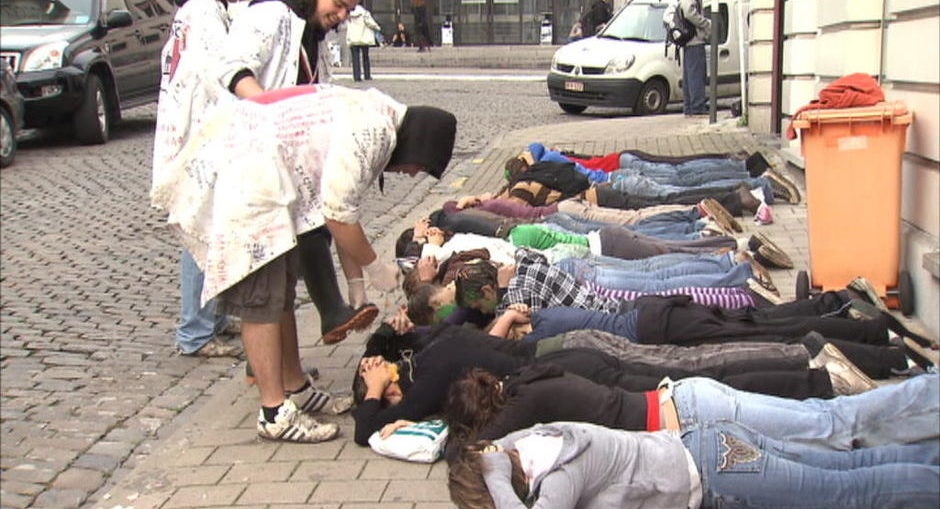The rector of the University of Antwerp has repeated his call for an explicit ban on a student hazing ritual which involves a student who wants to join an association being sold to a student with the highest bid, giving them a "right of ownership."
The current Antwerp "student baptism charter" that regulates these rituals across all associations states that all initiation rituals must take place in a public space. However, the work done by a "schachten" - literally translated as shafts - after they get "bought" often takes place in private, which, according to rector Herman Van Goethem, makes it impossible to regulate what happens.
"We are badly informed about the practice of this selling aspect of the baptisms and suspect that this could lead to serious abuses; that is already enough to say: this is not okay," he told Radio 2 Antwerp, adding that the charter still leaves too much room for interpretation.
According to Peter De Meyer, the University of Antwerp's spokesperson, Van Goethem said two years ago that he was against this aspect of the student hazings specifically.
"At that point, a working group was expected to be set up together with all other higher education institutions as well as the City of Antwerp and the city councillor for education. But due to the coronavirus crisis, this didn't happen," De Meyer told The Brussels Times.
For the same reason, no such initiations took place last year. Yet as more measures are relaxed, student initiations and hazing are once again on university agendas.
A new way of welcoming
Every year in May, the student hazing charter for the city of Antwerp is signed by the universities and all the student societies and circles. In 2021, the selling of "shafts" is still permitted by the charter, De Meyer said.
Despite the rector's opposition to the "schaftenverkoop", a few clubs connected to the University of Antwerp will continue with the ritual in 2021 and there are still several student associations that may organise them.
"These clubs have to decide for themselves whether they will do them, because legally it is still possible, according to this year's charter," he explained.
"However, the working group will now be set up at the start of the academic year and although it will take a few months, we will be working on a new text and a new way to welcome students and regulate more strictly how and when this should be done," De Meyer said.
Rector Van Goethem said during the radio interview that he had also hired an anthropologist to research these practices in the region of Antwerp.
"If we understand more about how the system works, we can work something out so that this ritual of humiliation can be turned into one of welcoming," he said.
Cannot repeat the past
Student initiations and the different rituals involved became topics of discussion again following the case of Sanda Dia, a 20-year-old student at the University of Leuven (KULeuven), who died from multiple organ failure and hypothermia after taking part in an initiation ritual to enter the student fraternity calling itself Reuzegom.
This resulted in Flemish hazing charters being set up in universities cities. But critics argue this is more of a symbolic text containing general rules of respect.
At the Vrije Universiteit Brussel (VUB), "schaftenverkopen" are never done for money - instead, the students being initiated are sold for beer and for a limited time or for particular assignments. According to its charter, individuals can't be obliged to participate in activities and have the right to stop participating in an activity at any time.
Although the Brussels university has never received any complaints about this particular aspect of students hazings, according to its spokesperson Sicco Wittermans, associations are from this academic year obliged to appoint a confidential advisor.
"Students being initiated and other members can turn to this person if they have a problem with something or experience problems with other (board) members," Wittermans told The Brussels Times.
Van Goethem said he is not too concerned about the students' reactions to a possible ban, pointing to a mentality change.
"Our students are very aware of what happened at KULeuven, and there is a sense that everyone feels that this cannot be repeated," he said, adding that the time is "really ripe to talk about this."

